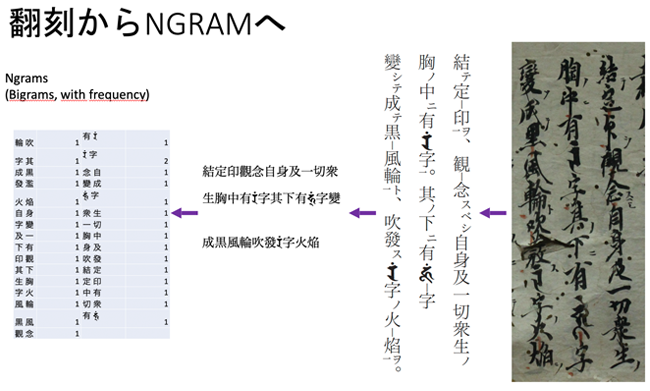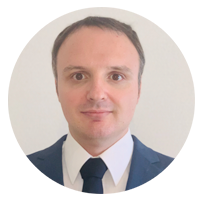What you can do because of the fusion of humanities and sciences
“In my classes, before studying history that incorporates digital technology, we first learn the basics of history and what history is in the first place. It must have been a formal course of memorization and memorization of what happened and when, but history studied at university is based on fragmentary information and materials, and is a field of study that pursues the situation at that time in depth. is.
In historiography, instead of believing the given information as it is, we learn the process of properly pursuing, understanding, and proving "why was that so?" or formulating and verifying new hypotheses. The most important thing is to think for yourself.
In classes and seminars, after learning such historical methodology, we incorporate digital technology to experience past historical landscapes with VR (virtual reality), and experience walking in the present with AR (augmented reality). I am trying to experience what the roads were like in the past through my smartphone, and I am also working on creating digital maps and text mining.
These digital technologies will continue to develop, but I would like students to master the process of how to extract data from historical information, analyze it, consider it, and reach a conclusion.Actually, even if this is not a historical study, it is a "model of thinking" that can be used in various situations.I think that it is a skill that will always be useful even after I go out into society.
In the environment of the Faculty of Culture and Information Studies, the most important point is that it is possible to learn in a way that transcends the boundaries between science and humanities, and that researchers from different fields and students who specialize in various fields can interact with each other. .In fact, even in the field of digital history research, it is becoming more common for historians and informatics and statistics specialists to interact and research together, not just between historians. As a result, research has made great strides. ”

The Future of History Using Digital Humanities
“Looking at the trends in the West, I think that the technology of the Digital Humanities will probably become commonplace in the future. There will be more and more data that can be accessed and used freely on the Internet. As a result, not only will the accuracy of text analysis improve, but it will also be possible to find commonalities in a huge amount of historical materials using AI technology that has not been thought of in the past. The possibility of developments that overturn the current course of history is also fully conceivable.
However, the more such technology develops, the more important it is to think based on the methodology of historical studies, rather than simply relying on technology, and I believe that this will continue to be passed down.
In Japan, there was a big movement called digital archiving in the 2000s.Its importance became more widely recognized after many materials were lost or damaged after the Great East Japan Earthquake.It was created for the purpose of preserving and passing on data and history, but in Italy, for example, cultural heritage is put into a database and can be searched on a map. But as mandated, it has become one of the major government initiatives in various countries.I expect that this will be a field that will develop significantly in Japan as well.
Japan is a country with a lot of history-themed content such as taiga dramas, anime, manga, and games, and there are many opportunities to come into contact with history in our daily lives.Since history is influenced by the social environment, the study of ``public history,'' which examines the relationship between society and history, is currently attracting attention in Japan."
In this way, history requires not only the traditional methodologies learned in the humanities, but also multifaceted learning that adds specific techniques and ways of thinking such as statistics in the sciences.It can be said that it is truly a transitional period in which conventional historical studies and historical perceptions are changing.

Doshisha University Faculty of Culture and Information Studies Associate Professor
Gaetan RAPPO
Graduated from the University of Geneva in 2014.He has a PhD (Literature).After working as a foreign researcher at Waseda University, a visiting researcher at Harvard University, and a specific associate professor at Hakubi, Kyoto University, he assumed his current position in 2021.With reference to the traditional methods of Western religious studies, he researches the religious history of medieval Japan and the world view of the people of that time.In recent years, he has opened the Digital History Laboratory, where he pursues historical research using the methods of Digital Humanities as well as the analysis of sacred teachings in medieval Japan.
- 1
- 2

